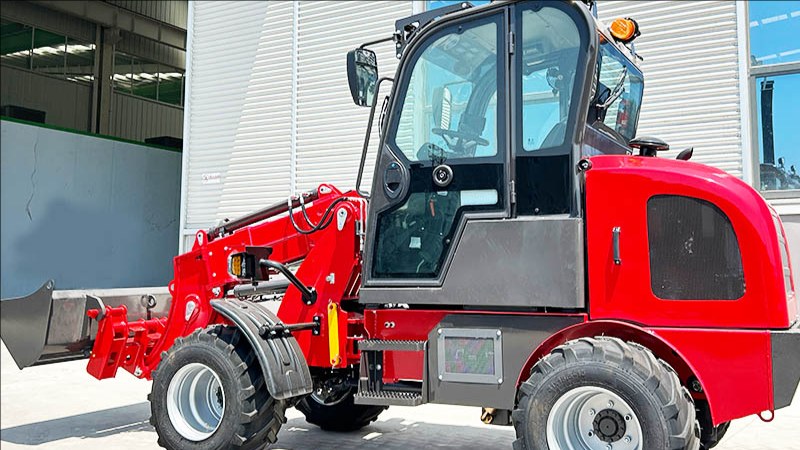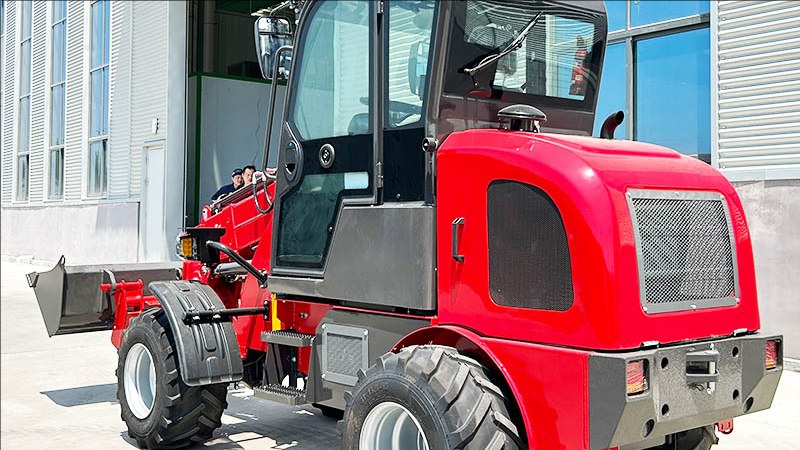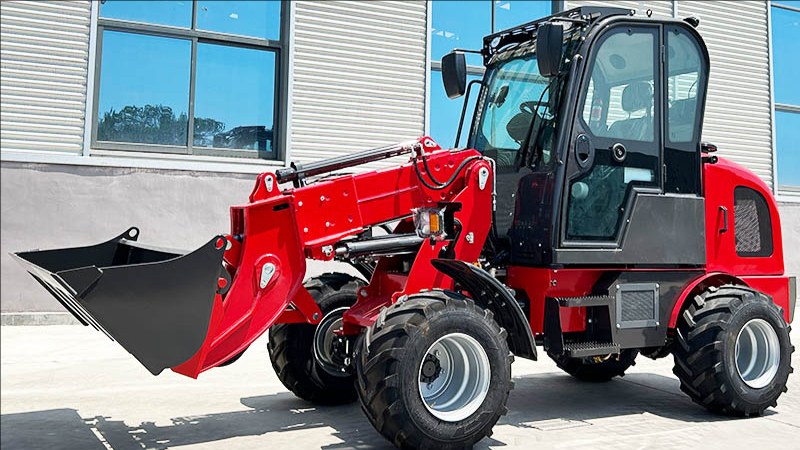The European market for wheel loaders is characterized by rigorous demands for reliability, efficiency, and adaptability across diverse sectors such as construction, agriculture, logistics, and mining. When identifying the most reliable wheel loader brands, it is essential to consider factors like engineering excellence, historical performance, and alignment with regional operational requirements. Brands such as Volvo, Caterpillar, Liebherr, and Komatsu have consistently emerged as frontrunners due to their unwavering commitment to quality, innovation, and customer satisfaction. Volvo, for instance, is renowned for its robust build quality, advanced hydraulic systems, and exceptional fuel efficiency, making its models like the L series highly popular for heavy-duty applications. Caterpillar, with its global reputation for durability, offers wheel loaders that excel in challenging environments, featuring powerful engines and resilient components that minimize downtime. Liebherr stands out for its precision engineering and focus on operator comfort, integrating sophisticated control systems and ergonomic designs that enhance productivity. Komatsu, known for its intelligent Machine Control and automated features, provides wheel loaders that optimize performance through real-time data analytics and automated functions. These brands have cemented their positions not only through product superiority but also via comprehensive dealer networks and responsive customer support structures tailored to the European context. The reliability of a wheel loader in this market is intrinsically linked to its ability to perform consistently under varying climatic conditions, comply with stringent emission regulations like Stage V, and offer versatility through compatible attachments. Thus, when evaluating reliability, one must look beyond mere mechanical endurance to encompass overall value proposition, cost of ownership, and brand credibility sustained over decades.
Delving deeper into the technical attributes that define reliability, key aspects include engine performance, transmission efficiency, structural integrity, and technological integration. European operators prioritize wheel loaders that deliver high torque at low RPM, ensuring fuel economy without compromising on power, especially given the region’s high fuel costs. Brands like John Deere and Doosan have also gained traction by offering models that balance performance with affordability, incorporating common-rail diesel engines and eco-mode options to reduce operational costs. The transmission systems in reliable wheel loaders often feature automatic or powershift variants that provide seamless speed transitions and reduce operator fatigue, critical for long shifts in industrial settings. Structural durability, another cornerstone of reliability, involves the use of high-strength steel in booms and chassis, reinforced axles, and superior cooling systems to prevent overheating during intensive tasks. Moreover, the integration of digital technology has become a hallmark of top-tier brands; for example, Volvo’s CareTrack telematics system allows fleet managers to monitor machine health, location, and fuel usage remotely, facilitating proactive maintenance and reducing unexpected breakdowns. Similarly, Caterpillar’s Cat Connect technology leverages data to optimize workflow and predict servicing needs. These innovations not only enhance reliability but also align with Europe’s push toward smart infrastructure and sustainable construction practices. The ability to seamlessly connect with other machinery on-site and adapt to IoT-based ecosystems is increasingly becoming a deciding factor for buyers seeking long-term investments. Furthermore, brands that offer extensive customization options—such as specialized buckets, forks, or grapples—add value by ensuring their wheel loaders meet precise application needs, from handling bulk materials in ports to grading surfaces in urban development projects.
Beyond product features, the reliability of a wheel loader brand in Europe is heavily influenced by after-sales support, parts availability, and service network responsiveness. A machine’s theoretical durability means little if maintenance and repairs are delayed due to logistical gaps. Established brands like Volvo and Caterpillar boast dense networks of certified dealers across Europe, ensuring that technical assistance and genuine parts are accessible within short lead times, even in remote areas. This is complemented by training programs for operators and mechanics, which help maximize equipment uptime and lifespan. Liebherr’s emphasis on customer-centric services, including 24/7 support and tailored service agreements, further solidifies its reputation for reliability. Similarly, Komatsu’s European distribution strategy focuses on minimizing downtime through advanced diagnostic tools and mobile service units that can address issues on-site. For newer entrants like Hyundai Heavy Industries or SANY, gaining market share hinges on building similar support infrastructures and proving their commitment to long-term customer relationships. Another critical aspect is compliance with regional regulations; reliable brands proactively engineer their wheel loaders to meet EU noise and emission standards, avoiding legal hassles and potential operational restrictions. The financial aspect also plays a role: brands offering favorable warranty terms, financing options, and transparent total cost of ownership calculations tend to be perceived as more reliable, as they reduce the economic risks associated with procurement. Ultimately, reliability is a multifaceted concept that blends mechanical resilience with ecosystem support, and European buyers often weigh these factors through pilot testing, peer reviews, and industry certifications like ISO standards or awards from machinery fairs.
Looking toward the future, the wheel loader market in Europe is evolving with trends toward electrification, automation, and circular economy principles, which are reshaping perceptions of reliability. Brands that invest in electric wheel loaders, such as Volvo with its L25 Electric model, are positioning themselves as leaders in sustainability—a key priority for European governments and corporations. These electric models offer reduced noise pollution, zero emissions, and lower operating costs, while maintaining the power and performance of traditional diesel units. However, their reliability is assessed not just by battery life and charging infrastructure but also by the manufacturer’s ability to provide innovative solutions for energy management. Automation is another frontier; semi-autonomous and fully autonomous wheel loaders from companies like Liebherr and Komatsu are being tested in controlled environments, promising enhanced safety and productivity through reduced human error. The reliability of such advanced machines depends on robust software, cybersecurity measures, and adaptive learning capabilities. Additionally, the concept of reliability is expanding to include environmental sustainability, with brands promoting remanufactured components and recycling programs to extend product lifecycles. As customer expectations continue to rise, the most reliable wheel loader brands will be those that blend traditional strengths—durability, power, and service—with forward-thinking innovations that address Europe’s unique regulatory and operational landscape. For buyers, conducting thorough research, leveraging telematics data, and considering lifecycle costs will remain crucial steps in identifying equipment that delivers unwavering performance year after year, thereby maximizing return on investment in a competitive market.
Post time:Sep.17.2025



